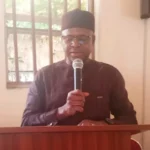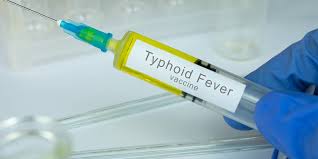By Hawau Sulyman/Justina Auta
Some medical experts have called for the adoption of urgent preventive measures to safeguard public health and reduce the risk of waterborne typhoid fever transmission in communities.
They raised these concerns in interviews with the News Agency of Nigeria (NAN) on Tuesday in Abuja.
Dr Bayo Ogundeyi of Lugbe Primary Health Care Centre, noted that typhoid was common in communities lacking proper Water, Sanitation and Hygiene (WASH) facilities.
Ogundeyi identified some of the symptoms to include prolonged fever, abdominal pain, diarrhea or constipation, headache, and general body weakness.
According to him, prevention through access to clean drinking water, hand hygiene, and safe food handling is necessary to curtail the disease and its health implications.
“Treatment is typically with prescribed antibiotics, alongside adequate hydration to prevent complications,” he added.
Also, Dr Kingsley Akhamie, a Family Physician at Nisa Premier Hospital, said that typhoid fever cases were more prevalent during the rainy season, when contamination of water sources was more likely.
“Patients often come in with fatigue, fluctuating temperatures, and digestive issues,” he said.
Akhamie stressed the need for regular public enlightenment on the effects of typhoid fever, as well as improved access to WASH facilities, regular water purification practices, and food safety.
“Beyond antibiotics, we sometimes admit patients with complications like intestinal perforation,” he said.
On his part, Dr Tosin Ogunyemi of Lugbe Health Post also raised similar concerns, saying many residents, especially children, fell ill due to poor sanitation and contaminated water.
“We advise people to boil drinking water or use water purification tablets, as well as practice proper handwashing techniques,” he said.
Meanwhile, some residents in the FCT have appealed to the government and philanthropists to improve access to healthcare services, provide WASH facilities, and conduct regular sensitisation campaigns, especially in underserved communities.
Mrs Joy Musa of Kabusa community said, “Most times, we rely on rainwater during the rainy season or go to nearby streams to get water, whenever we have no money to buy from the borehole.”
According to her, this has contributed immensely to ill health and other challenges affecting people at the community level.
Similarly, Mr Danjuma Ali, another FCT resident, said improved access to healthcare services would promote public health and ensure people received treatment for any illnesses. (NAN)(www.nannews.ng)
Edited by Abiemwense Moru












